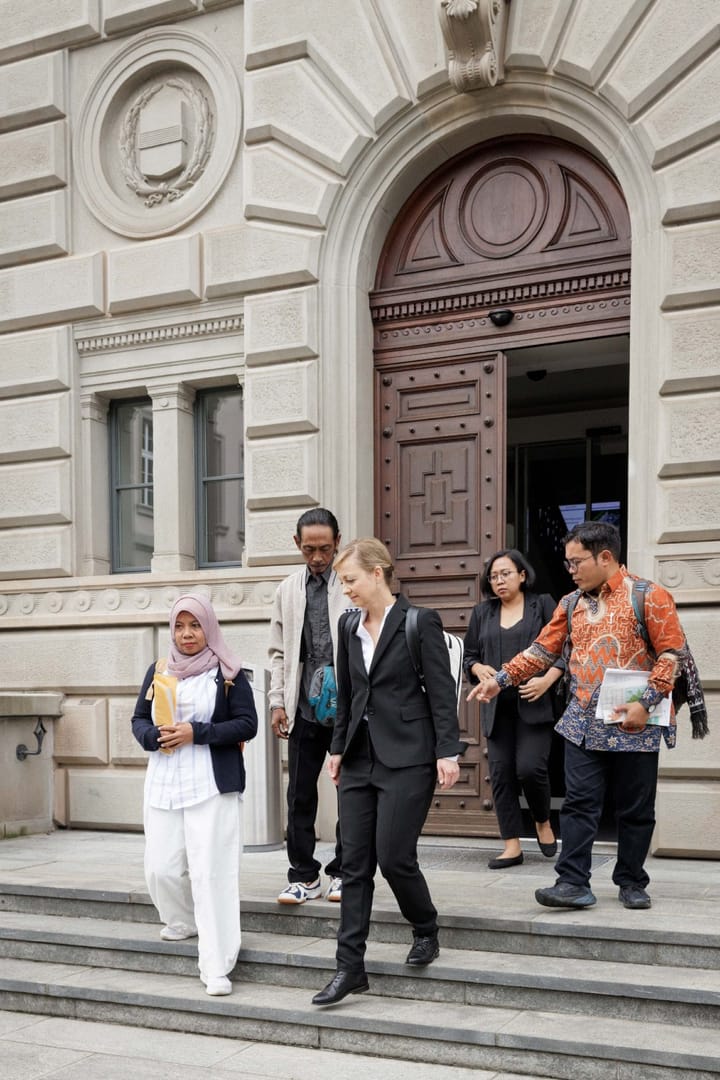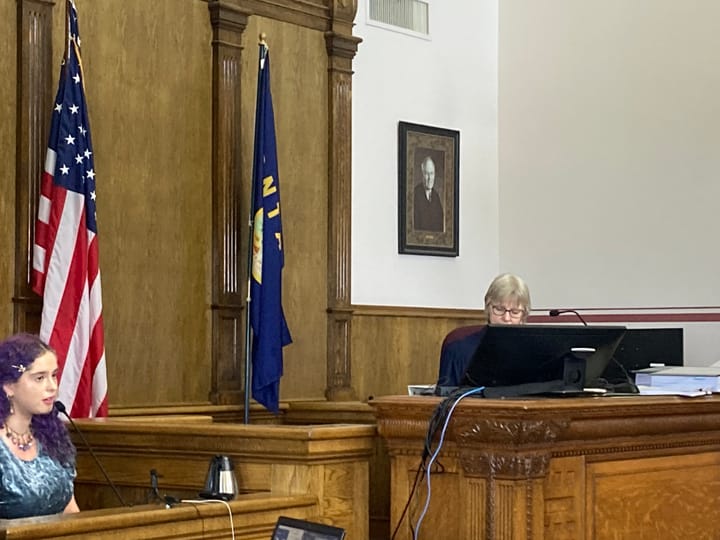Court To Decide Landmark Climate Justice Case In Australia

Australia’s federal court will determine if the government owes a ‘duty of care’ to protect Torres Strait Islanders, who are at risk of becoming displaced by rising seas.
A court in Australia is set to issue a ruling next week in a landmark climate change lawsuit that will determine whether the Australian government has a legal obligation to take stronger climate action in order to protect some of its most vulnerable people – the indigenous inhabitants of the Torres Strait Islands, which are at risk of being swallowed by rising seas as the planet heats up.
On July 15, the Federal Court of Australia will deliver its decision in the case Pabai Pabai v. Commonwealth of Australia. The decision could compel Australia, one of the world’s largest climate polluters and fossil fuel exporters, to rapidly slash its greenhouse gas emissions in line with the best available science.
The case was filed in October 2021 by two indigenous Torres Strait Islanders – Pabai Pabai and Guy Paul Kabai – against the Australian federal government alleging that its inadequate measures to prevent dangerous climate change are unlawful. The climate crisis threatens the very existence of the low-lying Torres Strait Islands located off the northeast tip of Australia. The lawsuit was launched as a class action on behalf of all Torres Strait Islanders, with support from the Grata Fund and the Urgenda Foundation.
Claimants argue that Australia has failed to protect the Islanders from damaging climate impacts which threaten their traditional ways of life and the very habitability of their homelands, and therefore, they say, the government has breached its legal duty of care. They seek both declaratory and injunctive relief – a court declaration that the government has violated its duty of care to the Torres Strait Islanders, and an order for the government to implement measures to remedy the harms, including by rapidly reducing Australia’s greenhouse gas emissions according to the best available science.
The Torres Strait Islands comprise over 200 small islands located in the Torres Strait region between Australia’s Cape York peninsula and Papua New Guinea. While only a fraction of the islands are inhabited, the people who do live here trace their heritage back thousands of years. They have developed unique cultures and identities that are deeply tied to the islands. But climate change now poses an existential threat to their lands and cultures. Within decades, some of these low-lying islands could be lost to rising seas, which would make the Torres Strait Islanders some of Australia’s first climate change refugees. Already, the islands are experiencing damaging impacts such as flooding and king tides, saltwater intrusion, and erosion.
“We are witnessing climate change, like erosion and inundation, rapidly getting worse before our eyes. If the Government keeps failing us, we will be forced to leave our homelands, to lose our identity, our culture – everything,” says Pabai Pabai.
Legal Arguments
This is a case squarely centered around the issue of climate injustice, in which a vulnerable population group that has done little to cause the climate emergency is facing disproportionate harms. The question before the court is whether the Australian government owes the Torres Strait Islanders a particular duty of care in the context of the climate crisis, to prevent foreseeable harms and mitigate ongoing damage including through adaptive measures.
The claimants argue the Commonwealth has positive obligations to protect them in the face of climate change. They say the government has extensive knowledge of climate risks and the particularized vulnerabilities of the Torres Strait Islands, and yet has disregarded these risks and failed to reduce its emissions in line with the best available science. According to a concise statement of claims filed with the court, Australia has “breached its duty of care by acting without regard to the best available science in assessing and addressing the current and projected harm to Torres Strait Islanders from climate change.”
Australia’s current climate pledges and policies are not aligned with a pathway to limiting warming to 1.5 °C; its 2030 emissions reduction target, according to the concise statement, “corresponds with a global temperature increase of more than 3°C.”
The duty of care obligation, claimants argue, arises from various sources of law such as tort law as well as the Torres Strait Treaty. The treaty, which entered into force in 1985 and defines the maritime boundaries between Australia and Papua New Guinea, protects the traditional ways of life of the inhabitants of the islands in the region.
The government rejects the assertion that it owes a duty of care to the Torres Strait Islanders. If the court recognized such an obligation and declared the government to be in violation of it, that would tread upon questions of policymaking that are “unsuited to judicial determination,” Australia argues.
“It does not follow that the Commonwealth owes a legal duty of care to protect a class of people from harm caused by particular impacts of climate change simply because it has knowledge of the risk of those impacts,” the government states in its written closing submission. “The Commonwealth needs to balance competing priorities in responding to these risks.” Australia also argues that its contribution to global greenhouse gas emissions is relatively minor and that no one country on its own can meaningfully mitigate global climate change. It further contends that the Torres Strait Treaty does not give rise to a novel duty of care because the treaty itself does not pertain to climate change.
The court held evidentiary hearings in 2023, traveling to the Torres Strait Islands to hear directly from the impacted communities. Hearings were also held in Cairns and in Melbourne. Both sides presented closing arguments during a session held in Cairns last year.
During closing arguments, lawyers for the claimants emphasized that the Torres Strait Treaty “imposes positive obligations on Australia to protect the traditional way of life of Torres Strait Islanders” and said that the government has long had specific knowledge of the harmful impacts that climate change would cause to these people. “It is an existential risk that these people are facing,” they argued.
Other Climate Cases - And a Forthcoming Historic Advisory Opinion
Australia has already found to be in violation of its human rights obligations due to its failure to protect Torres Strait Islanders from climate harms. In a case (Billy et al. v. Australia) brought by eight Torres Strait Islanders before the UN Human Rights Committee, the Islanders sought recognition that Australia’s inadequate response to the climate emergency violates their human rights. In September 2022, the Committee issued its groundbreaking decision determining that Australia’s failure to safeguard these people from adverse climate impacts violated their rights to culture and to private and family life. According to ClientEarth, which supported the Islanders in this pioneering case, the decision “marks the first time an international tribunal has found a country has violated human rights law through inadequate climate policy; the first time a nation state has been found responsible for their greenhouse gas emissions under international human rights law; and, the first time that peoples’ right to culture has been found to be at risk from climate impacts.”
The Pabai case also builds off of other climate cases brought against governments, particularly the Urgenda case in the Netherlands which was the first case of its kind to establish that a government has a legal duty of care to protect its people from climate change impacts. The Urgenda Foundation has supported Uncle Pabai and Uncle Paul in their case against Australia, which has been labeled “the Australian climate case.”
The Federal Court of Australia’s decision is coming just one week ahead of what is expected to be an historic advisory opinion from the International Court of Justice, clarifying countries’ obligations to protect the climate system under international law as well as the legal consequences for causing significant climate harm. The initiative to seek a climate change advisory opinion from this world court was led by Pacific Islands law students and by Pacific Island states like Vanuatu that, like the Torres Strait Islands, are on the frontlines of the climate emergency. The ICJ will deliver its advisory opinion on July 23.


